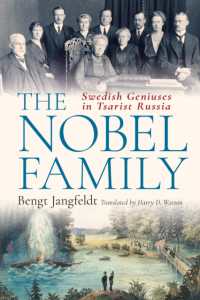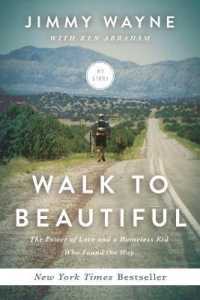Full Description
Speaking about his early experiments with the camera, the Nobel Prize winning novelist J. M. Coetzee acknowledged the seminal influence of images on his writing: 'The marks of photography and of the cinema are all over my work, from the beginning.' This book presents an archivally grounded examination of the influence of the camera on Coetzee's creative practice, providing insights that can help us read the novels in new ways. In this comprehensive examination of the formative role that photographic images play in Coetzee's oeuvre, Wittenberg offers evidence from biographical and archival sources, Coetzee's own critical writings, and the whole range of fictions themselves to gauge the extent of Coetzee's visual imagination. This book argues that the images that Coetzee writes into his fictions are charged with an affective and ethical force that connects them to larger questions relating to the truth, a relationship in which the autobiographical self is implicated.
Contents
1. Writing with images; 2. In the darkroom of fiction; 3. Picturing violence: dusklands, colonial photography and My Lai; 4. The camera in the Karoo: in the heart of the country and cinema; 5. Waiting for the barbarians: ocular ethics, cinematic dreaming and film; 6. Writing through the lens: life & times of Michael K and Foe; 7. The ends of photography: disgrace, slow man and the late fictions; Select bibliography; Index.







